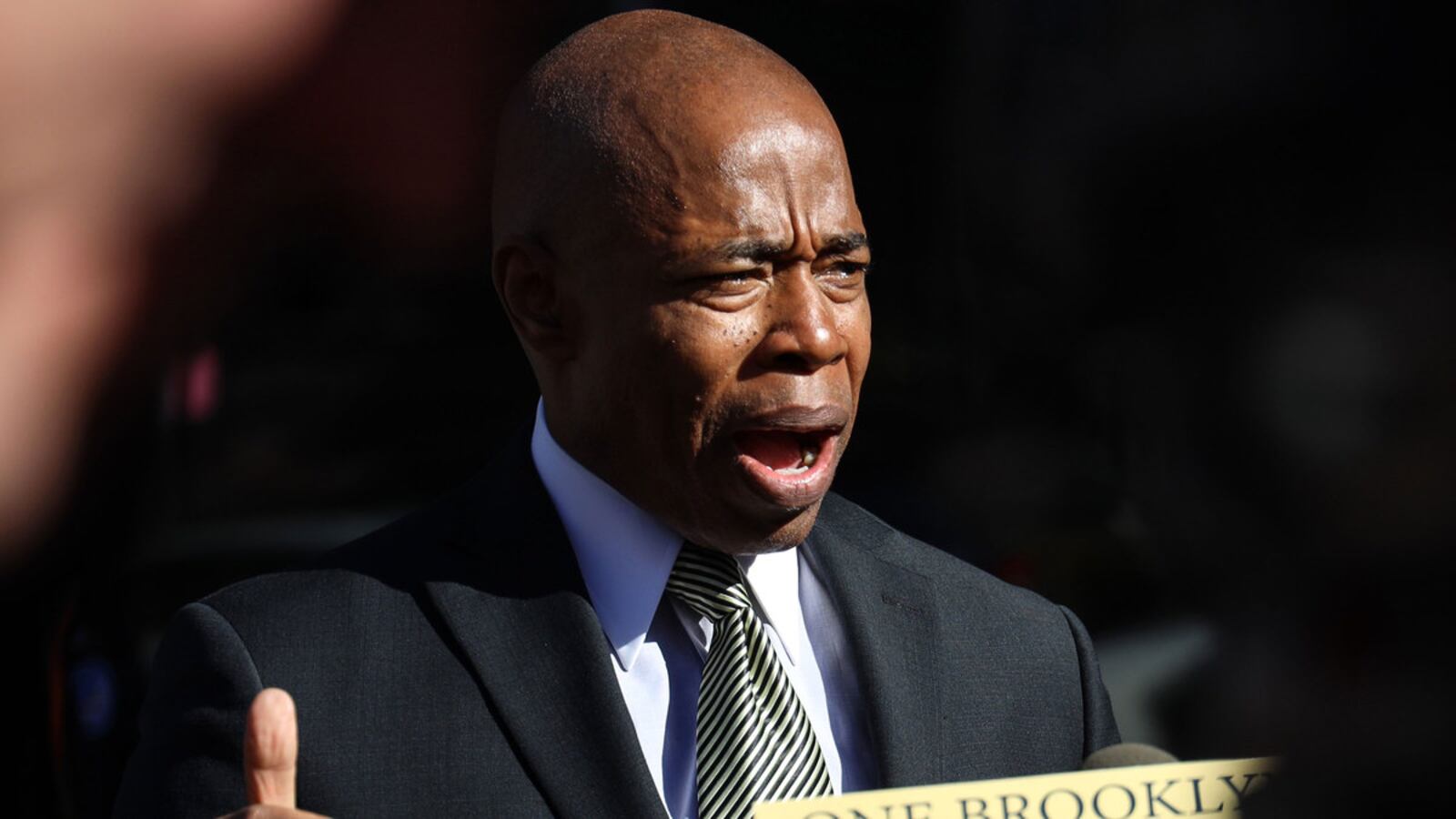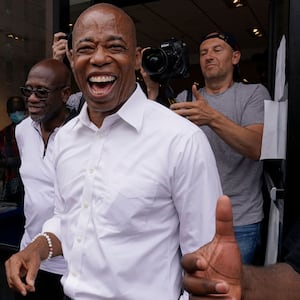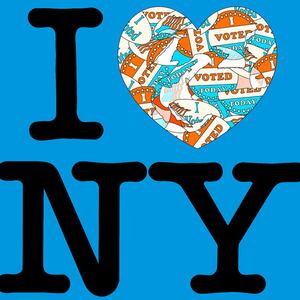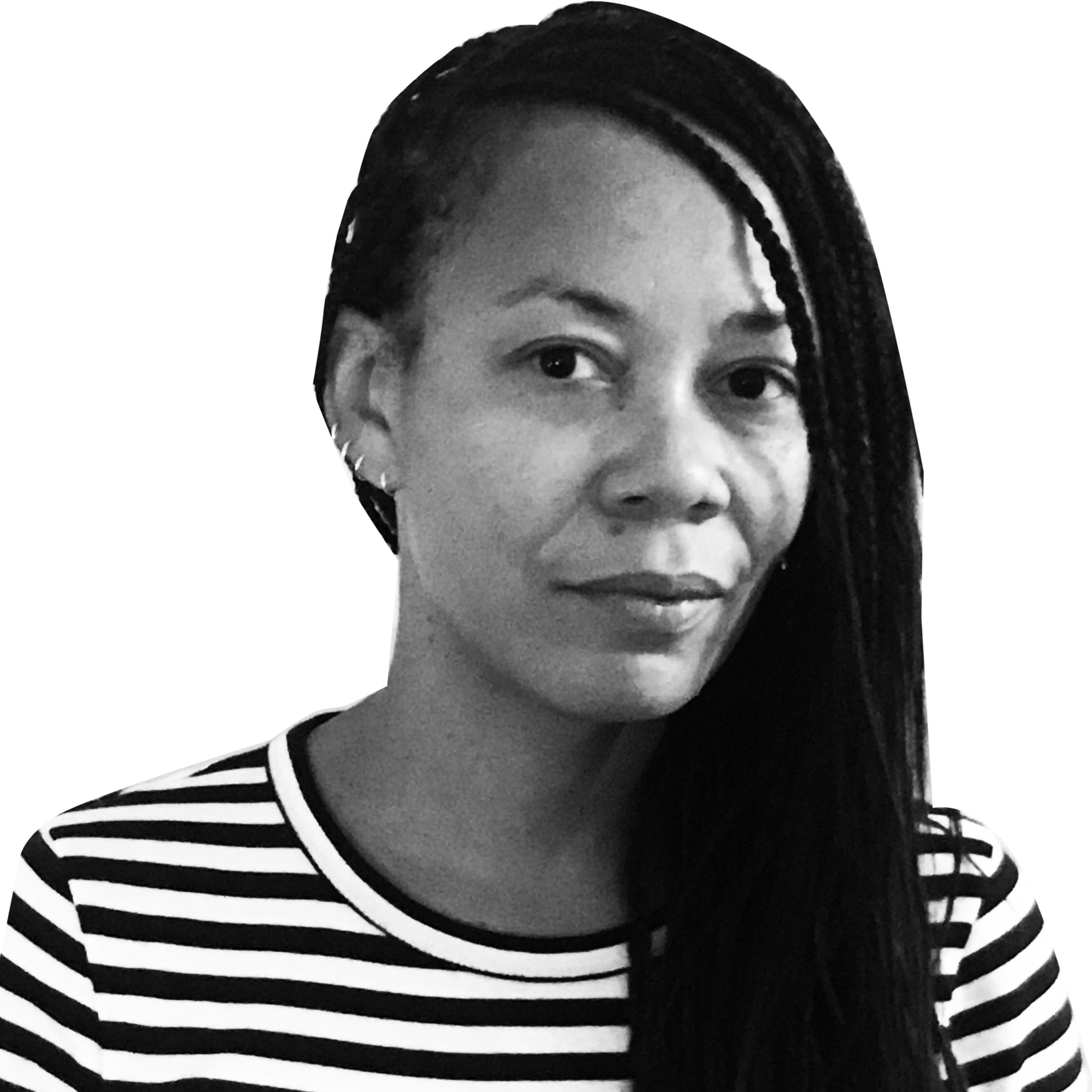Eric Adams, who’s waiting for the votes to be counted as he appears to be on the verge of becoming New York City’s next mayor, has had a lot to say about anti-Black racism in politics lately—at least where his own campaign is concerned.
In the weeks leading to election day, Adams equated questions about whether he resides in a Bed-Stuy basement unit or commutes from New Jersey to birther claims that “Obama was not born in America”; called a New York magazine profile detailing his connections to an assortment of corrupt sleazeballs and power brokers “a despicable racist portrayal,” and on Juneteenth portrayed the alliance between primary rivals Andrew Yang and Kathryn Garcia as an attack upon the ancestors undertaken “while we were celebrating liberation and freedom from enslavement.” Just 48 hours out from election day, Adams started using phrases like “poll tax” and “voter suppression”—while ominously alluding to “America’s dark past” and current GOP “stop the vote” efforts “across the country”—as his campaign circulated statements from surrogates outright stating that the Yang-Garcia partnership was an attempt to “steal the election.”
All this was a redefinition of anti-Black racism at a moment when it was politically advantageous for Adams. The former police captain was labeling perfectly valid questions and critiques as discrimination, exploiting Black New Yorkers’ justified fears and weariness of racism for his own political advancement in a page right out of the racist Republican playbook rewritten for his advantage.
“At a time when this country is seeing real voter suppression laws being enacted, using racism charges to undermine confidence in ranked-choice voting is cynical, self-interested and dangerous,” Maya Wiley, the Black woman who is second to Adams at this point in the count, said just before Election Day, later adding, “I will never play the race card lightly unless I see racism, and I’m not calling this racism.”
Adams’ use of charges of racism to inoculate himself from criticism stands in stark contrast to his disregard for the structural racism that daily threatens the lives and well-being of Black folks in the town he wants to govern. While it is true that throughout his 20-year tenure as a police officer, Adams became well-known for tussling with NYPD higher-ups and speaking out against “the racist DNA inside the department,” he continues to push a policy of so-called “reform” that, over recent decades, has proven ineffective in rehabbing an institution rife with anti-Black racism, corruption and criminality. (Adams has said that calls for defunding the police mostly come from “young white affluent people.”) He trumpets criminal justice policies that we have already seen have devastating consequences for Black folks and, as prison abolitionist Jada Shannon has written, deploys “his history as a police officer to call for the expansion of a carceral system that is killing Black communities — a fault that many may ignore because of his identity as a Black man.”
Adams is an advocate of broken-windows policing, claiming minor crimes like graffiti cause “lawlessness to spread,” despite a 2016 report from the NYPD’s own Office of the Inspector General that found aggressive policing was both useless in deterring crime and was almost always enforced in neighborhoods with “higher proportions of black and Hispanic residents.” He has called for the return of stop-and-frisk, which for decades amounted to a sustained campaign of harassment of humiliation against Black and Brown New Yorkers, who made up 87 percent of those searched by law enforcement even as they were “less likely to be found with a weapon.” The former cop has objected to limits on the barbaric practice of placing folks in solitary confinement in New York City jails, and pledged to bring back the NYPD’s infamous Anti-Crime team—the unit “whose officers killed Eric Garner, Sean Bell, Saheed Vessell and numerous others,” Shannon notes, and which employed just 6 percent of the city’s cops but “was responsible for 31 percent of fatal NYPD shootings.” Adams also wants an increased presence of armed police officers in schools—which criminalizes Black and brown children, suspending and arresting them at the highest rates—and on the subways.
It’s no wonder that the Police Benevolent Association, the Trump-supporting police union whose members 30 years ago publicly mocked the city’s only Black mayor as a “washroom attendant,” reportedly pushed members to back Adams and other moderates instead of what it labeled “anti-police” candidates, including Wiley, campaigning for a city that reinvests policing funds in communities. Obviously, none of this bodes well for Black New Yorkers, who are already over-policed in the name of white “public safety.”
It’s hard to put a finger on which is more cynical: Adams pointing to nonexistent anti-Black racism against his campaign to benefit himself, or his use of pro-Black language to distract from the anti-Black consequences of policies he supports. Like when Adams tried to pretend that raising rents on New Yorkers who live in rent-stabilized apartments was actually in the best interests of the city’s Black denizens.
“The greatest wealth of Black and Brown people in this city is in their property,” Adams said earlier this month, when asked if he would support a rent freeze for rent-stabilized tenants. “So when we start making these decisions on small property owners we need to factor that in because if we’re not going to freeze mortgage payments for those small property owners. If we’re not going to roll back their mortgage payments, then we need to be careful. Those who are idealistic about this issue, they must be realistic because Ms. Jones at 80 years old trying to pay her mortgage, if you start talking about freezing her rent, you start talking about rolling back, you start talking about no rent, she’s going to lose her home. And you’re going to see the greatest loss of wealth for Black, Brown, immigrant people in this city and that is a problem for me.”
The image of a Black grandmother losing her nest egg because of a rent break plucks at the heartstrings, but a 2020 study found that most of the landlords in New York City, including those who own rent-subsidized buildings, are real estate titans—like those who contributed heavily to Adams’s campaign—white billionaires and faceless corporate entities with a large number of holdings who are in no real danger of losing the many properties they’ve collected because rents aren’t hiked for a year. Black New Yorkers make up 22 percent of those living in rent-stabilized apartments, while non-white Latinx renters comprise another 42 percent. The biggest benefit to those tenants isn’t policies that are more friendly to the real estate interests who have already made the city prohibitively expensive for so many—and who support Adams, the landlord of at least one property who once announced, “I am real estate also.” (It should probably be added here that Adams allegedly neglected to pay various taxes on a property he did not previously disclose.) He has protested that reporting on the properties he owns and where he lives, as he spent much of the campaign sleeping in his government office, is itself somehow racist.
In the run-up to the election, where Adams claimed to see racism aimed at keeping him out of office, it seems more likely he was actually looking at opportunities to elevate himself. Should he end up winning this thing now that it’s all over but the counting, Black voters will be a big reason why Adams becomes the city’s next mayor. Here’s hoping his real estate ties and “tough-on-crime” posture won’t translate into an even less hospitable New York City for Black and Brown folks.



